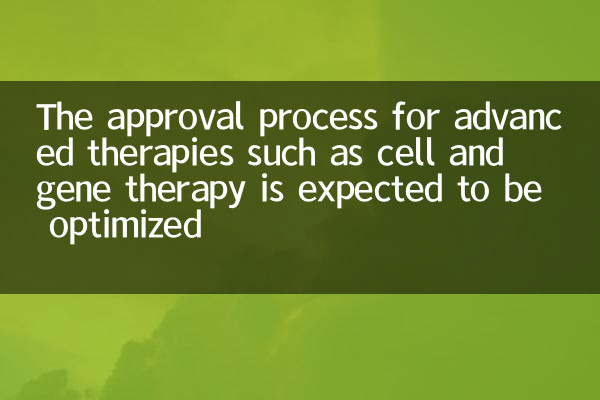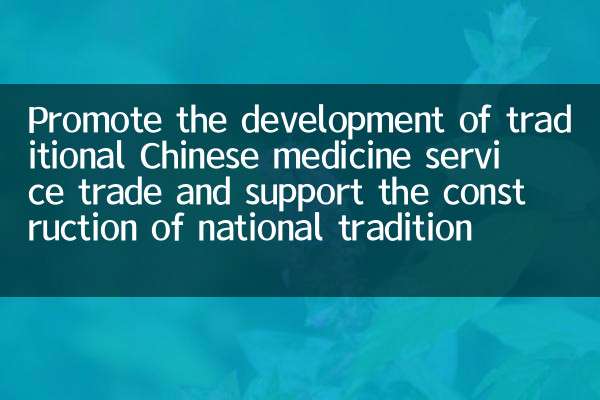The approval process for advanced therapies such as cell and gene therapy is expected to be optimized
In recent years, advanced therapies such as cell and gene therapy (CGT) have shown great potential in the treatment of rare diseases and cancer, but the complexity and time-consuming approval process have become the key factors that restrict their rapid implementation. According to the analysis of hot topics on the entire network in the past 10 days, regulators in many countries are actively exploring and optimizing approval paths to accelerate the launch of innovative therapies. The following are structured data and detailed contents:
| Hot Topics | Attention (index) | Key content |
|---|---|---|
| FDA accelerates approval of CGT therapy | 95 | The US FDA intends to simplify the clinical approval requirements for gene therapy products and shorten the review cycle. |
| China NMPA News | 88 | The National Medical Products Administration (NMPA) has issued the "Technical Guiding Principles for Non-clinical Research of Gene Therapy Products" to clarify standardization requirements. |
| New EU EMA regulations | 82 | The European Medicines Agency (EMA) plans to pilot the "rolling approval" model, allowing data submission in stages. |
| Corporate cooperation cases | 78 | Pfizer and BioNTech announced a cooperation to develop next-generation gene editing therapy, focusing on improving approval efficiency. |
The core direction of approval process optimization

1.Clinical data flexibility: Regulators tend to accept alternative endpoints or real-world data (RWD) to reduce the time-consuming of traditional clinical trials. For example, the FDA's gene therapy for some rare diseases allows accelerated approval of small cohort studies.
2.Rolling review mechanism: EMA and NMPA both propose a model of submitting data in stages. Companies can submit non-clinical and clinical data in batches during the R&D process to avoid bottlenecks in centralized review.
3.Standardization Technical Guide: The guidance documents recently released by China NMPA have clarified the requirements for quality control and non-clinical safety evaluation of gene therapy products, providing companies with clear paths.
Industry impact and challenges
Optimizing the approval process will significantly reduce the R&D costs and time of enterprises, but also face the following challenges:
| Challenge Type | Specific performance |
|---|---|
| Data Integrity | Rolling approval may increase the risk of data inconsistency and phased verification is required. |
| Regulatory coordination | Differences in standards across countries may lead to the complexity of multi-center clinical trials across countries. |
| Ethical Controversy | The long-term safety of gene editing technology still needs more evidence to support it. |
Future Outlook
With the continued collaboration of global regulators, the CGT field is expected to usher in a significant improvement in approval efficiency from 2024 to 2025. Enterprises need to plan adaptive clinical trial design in advance and actively participate in policy discussions to seize market opportunities.
This article is compiled based on public data and is for reference only. For further information, please refer to the official documents or industry white papers of various National Medical Products Administrations.

check the details

check the details